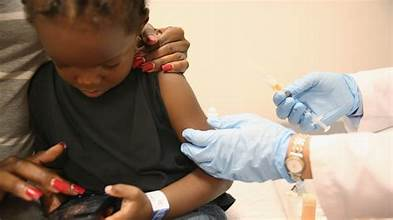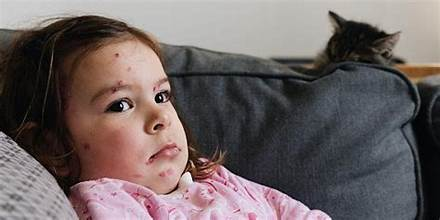Health officials in the USA and Canada confirm over 1,000 measles cases amid growing crisis
The United States and Canada are experiencing the most severe measles outbreak in over three decades, with health authorities confirming more than 1,000 cases as of this week. The Centers for Disease Control and Prevention (CDC) and Health Canada have issued urgent advisories as the outbreak spreads rapidly through major cities and rural areas alike.

This sudden surge in measles cases has sparked alarm among global health experts, who link the outbreak to declining vaccination rates, misinformation about vaccine safety, and increased international travel post-pandemic.
Regions Most Affected
According to the CDC, the hardest-hit states in the USA include:
- California (over 200 confirmed cases)
- New York (175 cases, primarily in Brooklyn and Queens)
- Texas (150 cases reported across schools and daycare centers)
- Florida (more than 90 confirmed cases)
In Canada, provinces like Ontario and British Columbia have reported more than 300 combined cases, with infections spreading rapidly among schoolchildren and unvaccinated communities.
“This is a national public health emergency,” said Dr. Sarah Kim, an epidemiologist at the Johns Hopkins Bloomberg School of Public Health. “We are seeing measles transmission in clusters that haven’t had exposure for decades.”
Why Measles Is So Dangerous
Measles is one of the most contagious viruses in the world. The disease spreads through respiratory droplets and can survive in the air for up to two hours. Symptoms include:
- High fever
- Cough and runny nose
- Red, watery eyes
- A rash that typically starts on the face and spreads
Severe complications can lead to pneumonia, brain inflammation, and even death—especially in children under five and adults over 30.
What makes this outbreak more concerning is the age group being affected. Unlike previous outbreaks mainly involving young children, this wave includes teenagers and adults, many of whom skipped routine immunizations during the COVID-19 pandemic.
Declining Vaccination Rates Blamed
Health experts say the outbreak is largely fueled by falling measles-mumps-rubella (MMR) vaccination rates. In several U.S. school districts and Canadian provinces, coverage has dropped below 90%, far from the 95% required for herd immunity.

“People were hesitant to visit clinics during COVID-19, and now we are paying the price,” said Dr. Elena Torres, a pediatrician based in Los Angeles. “We’re seeing measles in neighborhoods where we haven’t seen it for 30 years.”
An increasing number of anti-vaccine misinformation campaigns on social media platforms have also contributed to vaccine hesitancy. Public health officials are calling on tech companies to take action.
Read More on the Impact of Vaccine Misinformation:
CDC: Measles Outbreaks and Vaccine Hesitancy
Health Canada Immunization Guidelines
International Travel and Border Concerns
Both the U.S. and Canada reopened international travel routes over the past year, leading to increased population movement. Health officials have traced patient zero in both countries to travelers returning from Southeast Asia and Eastern Europe, where measles remains endemic.
The CDC has issued a Level 2 travel alert, advising all international travelers to ensure their MMR vaccinations are up to date before departure.
Link to CDC Travel Alert:
CDC Measles Travel Notice
Customs and border protection agencies are now coordinating with local health departments to screen travelers with fever or rash-like symptoms. However, due to the virus’s incubation period (7 to 14 days), many are already unknowingly spreading the disease before symptoms appear.
Emergency Response and Prevention Efforts
Governments on both sides of the border are scrambling to contain the outbreak. Key emergency responses include:
- Pop-up vaccination clinics in schools, malls, and community centers
- Mobile immunization vans sent to rural and under-vaccinated communities
- Public awareness campaigns in English, Spanish, French, and regional languages
- Temporary quarantine measures in some schools and daycares
Canadian Prime Minister Justin Trudeau and U.S. President Joe Biden have both issued public statements encouraging citizens to get vaccinated immediately and not to spread misinformation online.
WHO Issues Global Measles Alert
The World Health Organization (WHO) has officially labeled the outbreak as a “Public Health Risk of International Concern”. According to WHO data, global measles cases have increased by over 40% in 2025 compared to last year.
Dr. Maria Van Kerkhove, head of WHO’s epidemic response team, warned: “If countries like the U.S. and Canada—where measles was considered eliminated—can see such a rise, it’s a signal to the world to strengthen vaccination efforts now.”
More on Global Measles Alert by WHO:
WHO: Measles – Global Situation Report
What You Can Do
Health officials urge citizens across the U.S. and Canada to follow these preventive steps:
- Check your MMR vaccination status (especially for children, teenagers, and international travelers)
- Get vaccinated immediately if you have not received two doses of the MMR vaccine
- Avoid close contact with sick individuals and crowded areas if unvaccinated
- Report symptoms early to a healthcare provider
- Do not share unverified information related to vaccines or outbreaks
Final Thoughts
The current measles outbreak in North America is a harsh reminder of the dangers of skipping vaccinations. Once declared eliminated in the U.S. in 2000 and significantly reduced in Canada, measles has returned with alarming speed and severity. Public health authorities urge swift community action, education, and immunization to stop the virus in its tracks.
Also Read – These 2 Best Spots Are Connecticut’s Scenic, Says Yankee Magazine






